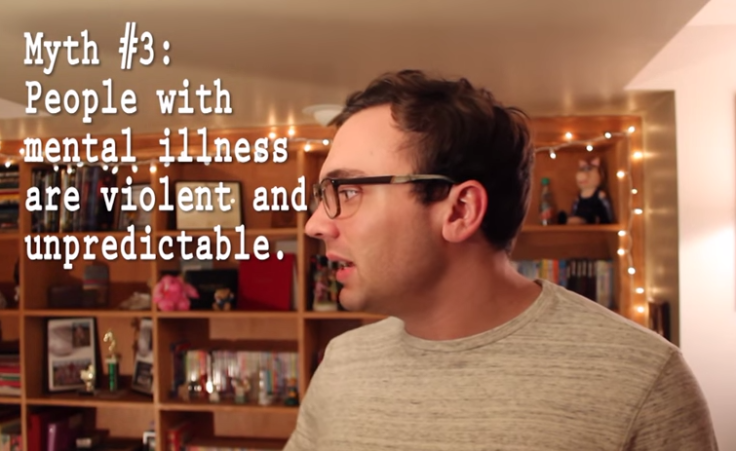Stigma Of Mental Illness: 5 Things You Believe About Mental Health That Couldn't Be Farther From The Truth

According to the National Institutes of Mental Health, one out of every 17 adults in the United States, 13.6 million people, are living with a severe mental illness such as schizophrenia, major depression, bipolar disorder. Even more staggering than the number of people living with a mental illness is the number of people who understand very little about mental illnesses. A recent survey conducted by the American Psychiatric Association (APA) revealed that 44 percent of the American public admit that they know little or almost nothing at all about mental illnesses.
"The consequences of this gap in knowledge are quite serious," Dr. Carolyn Robinowitz, secretary-treasurer and 2006 president-elect of the APA said in a statement. "About one-in-five Americans suffer from a diagnosable mental disorder during any given year. This means few families are untouched by a mental illness. All families will benefit from understanding how these disorders can impact their lives."
Findings from the survey also revealed that one-third of Americans are under the impression that emotional or personal weakness and old age are major contributing factors to mental illness. Thankfully, people are willing to broaden their horizons when it comes to mental health. Eighty-four percent of survey respondents said they would benefit from knowing more about the warning signs for a mental illness. Here are five myths regarding mental illness that you may have been fooled by:
1. Children don’t experience mental illness. It’s just bad parenting.
2. Stress causes mental illness.
3. People with mental illness are violent and unpredictable.
4. People with mental health problems can’t handle the stress of having a job.
5. Weakness and flaws cause mental illness.



























